Yameng Huang
An Enhanced Knowledge Injection Model for Commonsense Generation
Dec 01, 2020
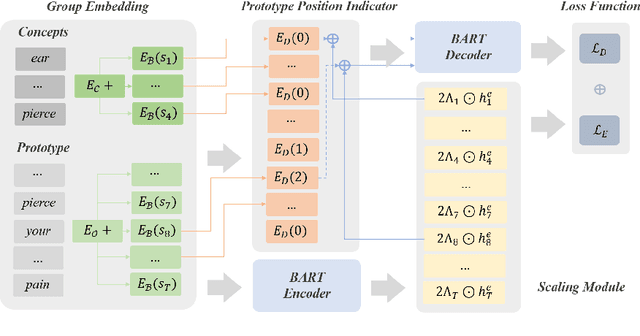
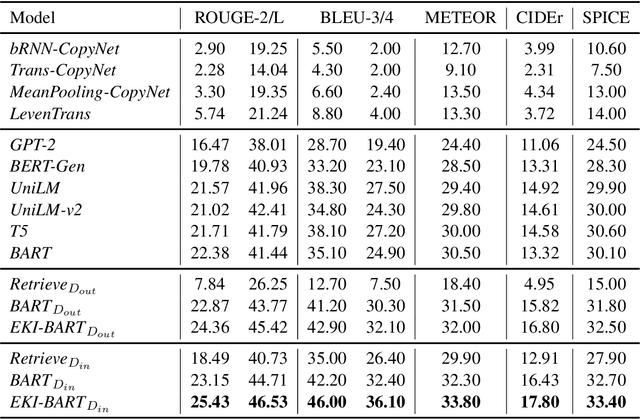
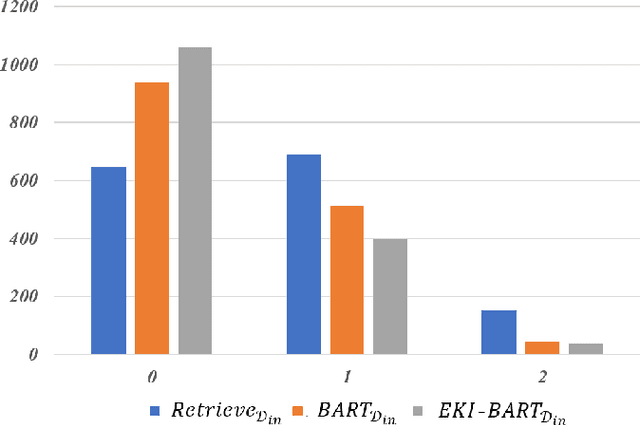
Abstract:Commonsense generation aims at generating plausible everyday scenario description based on a set of provided concepts. Digging the relationship of concepts from scratch is non-trivial, therefore, we retrieve prototypes from external knowledge to assist the understanding of the scenario for better description generation. We integrate two additional modules, namely position indicator and scaling module, into the pretrained encoder-decoder model for prototype modeling to enhance the knowledge injection procedure. We conduct experiment on CommonGen benchmark, and experimental results show that our method significantly improves the performance on all the metrics.
Accelerating Asynchronous Algorithms for Convex Optimization by Momentum Compensation
Feb 27, 2018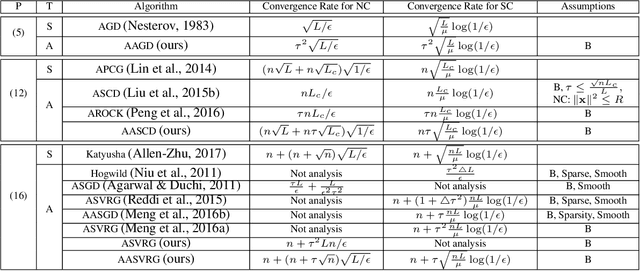


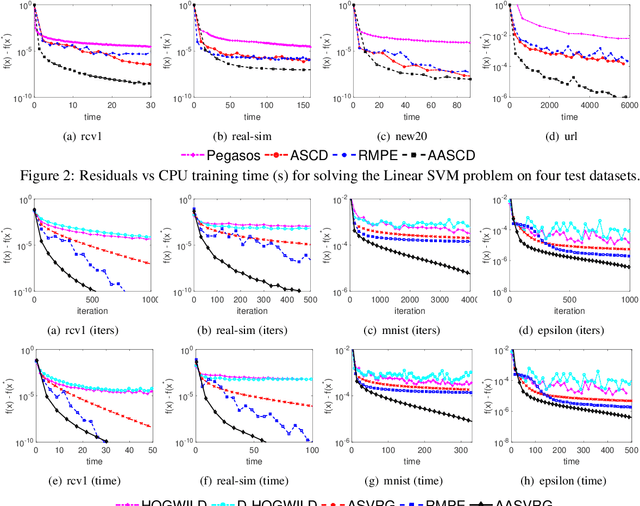
Abstract:Asynchronous algorithms have attracted much attention recently due to the crucial demands on solving large-scale optimization problems. However, the accelerated versions of asynchronous algorithms are rarely studied. In this paper, we propose the "momentum compensation" technique to accelerate asynchronous algorithms for convex problems. Specifically, we first accelerate the plain Asynchronous Gradient Descent, which achieves a faster $O(1/\sqrt{\epsilon})$ (v.s. $O(1/\epsilon)$) convergence rate for non-strongly convex functions, and $O(\sqrt{\kappa}\log(1/\epsilon))$ (v.s. $O(\kappa \log(1/\epsilon))$) for strongly convex functions to reach an $\epsilon$- approximate minimizer with the condition number $\kappa$. We further apply the technique to accelerate modern stochastic asynchronous algorithms such as Asynchronous Stochastic Coordinate Descent and Asynchronous Stochastic Gradient Descent. Both of the resultant practical algorithms are faster than existing ones by order. To the best of our knowledge, we are the first to consider accelerated algorithms that allow updating by delayed gradients and are the first to propose truly accelerated asynchronous algorithms. Finally, the experimental results on a shared memory system show that acceleration can lead to significant performance gains on ill-conditioned problems.
 Add to Chrome
Add to Chrome Add to Firefox
Add to Firefox Add to Edge
Add to Edge